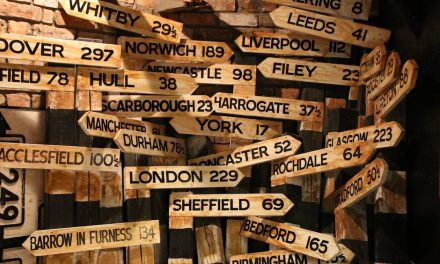Table of Contents
Expanding Horizons: The Value of Field Trips in Education – Broadening Minds, Inspiring Learning.
Introduction
Introduction:
Field trips have long been recognized as a valuable component of education, offering students the opportunity to expand their horizons beyond the confines of the classroom. These excursions provide real-world experiences that enhance learning, foster curiosity, and promote a deeper understanding of various subjects. By immersing students in new environments and exposing them to different cultures, industries, and natural wonders, field trips play a crucial role in broadening their perspectives and enriching their educational journey. In this article, we will explore the significant value of field trips in education and how they contribute to the holistic development of students.
The Benefits of Experiential Learning Through Field Trips

Field trips have long been a staple of the educational experience. These excursions provide students with the opportunity to learn outside the confines of the classroom, immersing themselves in real-world experiences that bring their lessons to life. The benefits of experiential learning through field trips are numerous and have been well-documented by researchers and educators alike.
One of the primary advantages of field trips is that they allow students to apply what they have learned in the classroom to real-world situations. This hands-on approach to learning helps to solidify concepts and make them more meaningful. For example, a visit to a science museum can reinforce the principles of physics or biology that students have been studying in class. By seeing these concepts in action, students are better able to understand and remember them.
Field trips also provide students with the opportunity to develop important life skills. When students are taken out of their comfort zones and placed in new environments, they are forced to adapt and problem-solve. This can help to build resilience and self-confidence, as students learn to navigate unfamiliar situations and overcome challenges. Additionally, field trips often require students to work together in groups, fostering teamwork and collaboration skills that are essential in the real world.
Furthermore, field trips can help to broaden students’ horizons and expose them to new ideas and perspectives. By visiting museums, historical sites, or cultural institutions, students are able to gain a deeper understanding of different cultures, traditions, and historical events. This exposure to diverse experiences can help to foster empathy and tolerance, as students learn to appreciate and respect different ways of life.
In addition to these academic and personal benefits, field trips can also have a positive impact on students’ motivation and engagement. Research has shown that students are more likely to be engaged and interested in their learning when it is connected to real-world experiences. Field trips provide a break from the routine of the classroom and offer a fresh and exciting way to learn. This can help to reignite students’ curiosity and enthusiasm for learning, making them more motivated and eager to participate in their education.
It is important to note that the benefits of field trips are not limited to students. Teachers also stand to gain from these experiential learning opportunities. Field trips can provide teachers with new insights and perspectives that they can bring back to the classroom. By experiencing firsthand the subjects they teach, teachers can enhance their own knowledge and understanding, which in turn can improve their teaching methods and effectiveness.
In conclusion, field trips offer a valuable and enriching educational experience for students. The benefits of experiential learning through field trips are numerous, ranging from the application of classroom knowledge to the development of life skills and the broadening of horizons. These excursions provide students with the opportunity to learn in a hands-on and engaging way, fostering motivation and engagement. Additionally, field trips can also benefit teachers by enhancing their own knowledge and teaching methods. As such, field trips should continue to be an integral part of the educational experience, expanding students’ horizons and enriching their learning journey.
Enhancing Cultural Understanding and Appreciation Through Field Trips
Field trips have long been a staple of the educational experience, providing students with the opportunity to explore the world beyond the classroom walls. These excursions offer a unique and valuable way to enhance cultural understanding and appreciation. By immersing students in different environments and exposing them to diverse cultures, field trips can broaden their horizons and foster a deeper appreciation for the world around them.
One of the primary benefits of field trips is the opportunity they provide for students to experience different cultures firsthand. By visiting museums, historical sites, or cultural centers, students can engage with artifacts, artworks, and traditions that are unique to a particular culture. This hands-on experience allows students to develop a more nuanced understanding of different cultural practices and beliefs. It also helps to break down stereotypes and misconceptions that may exist, promoting a more inclusive and accepting society.
Furthermore, field trips can help students develop empathy and respect for cultural differences. By interacting with individuals from different backgrounds, students can gain a deeper appreciation for the challenges and triumphs that shape their lives. This firsthand experience can foster a sense of empathy and understanding, encouraging students to embrace diversity and celebrate the richness of different cultures. In a world that is becoming increasingly interconnected, these skills are essential for fostering global citizenship and promoting peaceful coexistence.
In addition to enhancing cultural understanding, field trips can also spark students’ curiosity and ignite a passion for learning. By exposing students to new environments and experiences, field trips can inspire them to explore new subjects and pursue further education. For example, a visit to a science museum may ignite a student’s interest in biology or physics, leading them to pursue a career in the sciences. By providing students with real-world examples and hands-on experiences, field trips can make learning more tangible and relevant, motivating students to engage with their studies on a deeper level.
Moreover, field trips can also help bridge the gap between theory and practice. Many subjects, such as history or art, can seem abstract and distant when taught solely through textbooks and lectures. However, by visiting historical sites or art galleries, students can see firsthand the impact and significance of these subjects. This experiential learning allows students to connect theoretical concepts to real-world applications, making their education more meaningful and memorable.
It is important to note that field trips should be carefully planned and integrated into the curriculum to maximize their educational value. Teachers should ensure that the chosen destinations align with the learning objectives and provide opportunities for students to engage actively with the subject matter. Additionally, pre- and post-trip activities can help students prepare for and reflect on their experiences, deepening their understanding and facilitating meaningful discussions.
In conclusion, field trips play a crucial role in enhancing cultural understanding and appreciation among students. By immersing students in different environments and exposing them to diverse cultures, field trips can broaden their horizons and foster empathy and respect for cultural differences. Moreover, these excursions can spark curiosity, bridge the gap between theory and practice, and inspire a lifelong love of learning. As educators, it is our responsibility to harness the power of field trips and provide students with the opportunity to explore the world beyond the classroom walls.
Field Trips as a Tool for Developing Critical Thinking Skills
Field trips have long been a staple of the educational experience, providing students with the opportunity to explore the world beyond the confines of the classroom. While these excursions are often seen as a break from traditional learning, they actually serve a much greater purpose. Field trips are a valuable tool for developing critical thinking skills in students.
Critical thinking is a skill that is highly sought after in today’s society. It involves the ability to analyze information, evaluate arguments, and make informed decisions. Field trips provide students with real-world experiences that require them to think critically and apply their knowledge in new and unfamiliar situations.
One way that field trips promote critical thinking is by exposing students to different perspectives and ideas. When students visit a museum, for example, they are exposed to a wide range of artwork and artifacts from different cultures and time periods. This exposure challenges students to think critically about the meaning and significance of these objects, and to consider how they fit into the larger context of history and culture.
Field trips also encourage students to ask questions and seek out answers. When students visit a science center, for instance, they may be presented with a variety of interactive exhibits that require them to think critically about scientific concepts. They may need to hypothesize, experiment, and draw conclusions based on their observations. This process of inquiry not only develops critical thinking skills, but also fosters a sense of curiosity and a love of learning.
In addition to promoting critical thinking, field trips also provide students with the opportunity to develop problem-solving skills. When students are taken out of their familiar environment and placed in a new setting, they are forced to adapt and find solutions to unexpected challenges. For example, when students visit a historical site, they may encounter obstacles such as language barriers or limited access to certain areas. In order to navigate these challenges, students must think critically and come up with creative solutions.
Field trips also allow students to see the practical application of what they are learning in the classroom. For example, a visit to a farm can help students understand the concepts of agriculture and food production in a tangible way. By seeing firsthand how crops are grown and animals are raised, students can make connections between what they learn in the classroom and how it applies to the real world. This hands-on experience not only reinforces their understanding of the subject matter, but also encourages them to think critically about the broader implications of their learning.
In conclusion, field trips are a valuable tool for developing critical thinking skills in students. By exposing students to different perspectives, encouraging them to ask questions, and providing them with opportunities to problem-solve and apply their knowledge, field trips foster the development of critical thinking skills that are essential for success in today’s society. As educators, it is important to recognize the value of field trips and incorporate them into our curriculum to ensure that our students are well-prepared for the challenges of the future.
Field Trips: Fostering Social and Emotional Growth in Students
Field trips have long been a staple of the educational experience, providing students with the opportunity to explore the world beyond the confines of the classroom. While these excursions are often seen as a break from traditional learning, research suggests that they play a crucial role in fostering social and emotional growth in students.
One of the key benefits of field trips is the opportunity for students to interact with their peers in a different setting. In the classroom, students are often confined to their desks, working independently or in small groups. However, on a field trip, they are able to engage in collaborative activities and build relationships with their classmates. This social interaction not only helps students develop important social skills, such as communication and teamwork, but also fosters a sense of belonging and community within the classroom.
Field trips also provide students with the chance to step outside of their comfort zones and experience new environments. Whether it’s visiting a museum, exploring a nature reserve, or touring a historical site, these excursions expose students to different cultures, perspectives, and ways of life. This exposure helps broaden their horizons and encourages them to think critically about the world around them. It also promotes empathy and understanding, as students are able to see firsthand the challenges and triumphs of different communities.
In addition to social and cultural growth, field trips also have a significant impact on students’ emotional development. Research has shown that these excursions can reduce stress and anxiety, as students are given the opportunity to take a break from the pressures of academic performance. Being in a new environment and engaging in hands-on activities can be both exciting and relaxing, allowing students to recharge and refocus their energy.
Furthermore, field trips provide students with a sense of autonomy and independence. While they are still under the supervision of their teachers, they are given more freedom to explore and make decisions for themselves. This sense of responsibility helps build self-confidence and self-esteem, as students learn to navigate unfamiliar situations and solve problems on their own. It also encourages them to take ownership of their learning, as they are actively engaged in the experience and motivated to seek out new knowledge.
It is important to note that the benefits of field trips extend beyond the immediate experience. Research has shown that these excursions have a lasting impact on students’ academic performance. By connecting classroom learning to real-world experiences, field trips help students make meaningful connections and deepen their understanding of the subject matter. This hands-on approach to learning has been shown to improve retention and comprehension, as students are able to see firsthand how the concepts they are studying apply to the world around them.
In conclusion, field trips are not just a fun day out of the classroom; they are a valuable tool for fostering social and emotional growth in students. By providing opportunities for social interaction, exposure to new environments, and autonomy in learning, these excursions help students develop important life skills and deepen their understanding of the world. As educators, it is crucial that we recognize the value of field trips and continue to incorporate them into our curriculum.
Q&A
1. What is the value of field trips in education?
Field trips provide students with real-world experiences, enhancing their understanding and knowledge beyond the classroom.
2. How do field trips expand students’ horizons?
Field trips expose students to new environments, cultures, and perspectives, broadening their worldview and fostering empathy and understanding.
3. What skills can students develop through field trips?
Field trips promote critical thinking, problem-solving, and communication skills, as students engage in hands-on learning and interact with experts in various fields.
4. How do field trips complement classroom learning?
Field trips reinforce classroom concepts by providing practical applications and real-life examples, making learning more meaningful and memorable for students.
Conclusion
In conclusion, field trips play a crucial role in education by expanding students’ horizons. They provide real-world experiences that cannot be replicated in the classroom, allowing students to engage with the subject matter in a more meaningful and memorable way. Field trips also promote critical thinking, problem-solving, and social skills, as students navigate new environments and interact with different people. Additionally, these experiences can inspire students to pursue further learning and career opportunities related to the field trip topic. Overall, field trips have immense value in education, enhancing students’ learning outcomes and broadening their perspectives.




